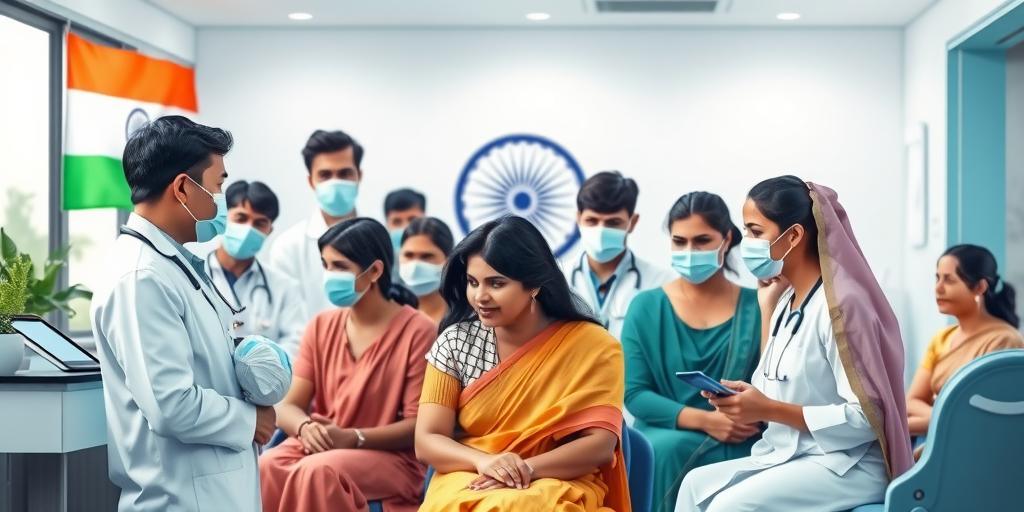Addressing Health Disparities in India: A 2025 Agenda
India, a nation of over a billion people, faces significant challenges in healthcare, particularly concerning health disparities. These disparities manifest across various dimensions, including socioeconomic status, geography, gender, and caste. This article outlines a proposed agenda for 2025 to address these inequalities and promote equitable healthcare access for all.
Understanding Health Disparities in India
Health disparities in India are deeply rooted in complex socio-economic factors. A significant portion of the population lacks access to basic healthcare services due to poverty, inadequate infrastructure, and geographical barriers. For instance, rural areas often have fewer healthcare facilities and trained professionals compared to urban centers. Additionally, marginalized communities and lower castes face discrimination, limiting their access to quality healthcare. Gender disparities are also prevalent, with women often receiving less attention and care than men, especially in reproductive health.
Key Areas of Focus for 2025
To effectively address these disparities, a multi-pronged approach is necessary. The agenda for 2025 should prioritize the following key areas:
-
Strengthening Primary Healthcare Infrastructure:
- Investing in rural healthcare centers and sub-centers to ensure they are adequately staffed and equipped.
- Training and deploying community health workers to provide basic healthcare services and health education at the grassroots level.
- Leveraging technology to improve healthcare delivery, such as telemedicine and mobile health clinics, to reach remote populations.
-
Improving Access to Affordable Healthcare:
- Expanding health insurance schemes to cover a larger portion of the population, particularly those below the poverty line.
- Increasing government spending on healthcare to reduce out-of-pocket expenses for patients.
- Promoting generic medicines and regulating drug prices to make essential medications more affordable.
-
Addressing Social Determinants of Health:
- Improving sanitation and hygiene through initiatives like the Swachh Bharat Abhiyan (Clean India Mission).
- Ensuring access to clean drinking water and nutritious food for all, especially pregnant women and children.
- Promoting education and awareness about health and hygiene practices.
-
Empowering Women and Girls:
- Strengthening maternal and child health services to reduce maternal and infant mortality rates.
- Promoting family planning and access to reproductive health services.
- Addressing gender-based violence and discrimination to improve women’s overall health and well-being.
-
Enhancing Data Collection and Monitoring:
- Improving the collection and analysis of health data to identify vulnerable populations and track progress in reducing health disparities.
- Establishing a robust monitoring and evaluation system to assess the effectiveness of interventions and programs.
- Using data to inform policy decisions and resource allocation.
Policy Recommendations
To achieve the goals outlined in the 2025 agenda, several policy recommendations should be implemented:
- Increase Public Health Funding: Allocate a larger percentage of the GDP to public health to support infrastructure development, human resources, and essential services.
- Strengthen Public-Private Partnerships: Encourage collaboration between the public and private sectors to improve healthcare delivery and expand access to services.
- Promote Health Equity in All Policies: Integrate health considerations into all policy decisions, ensuring that policies do not inadvertently exacerbate health disparities.
- Invest in Research and Innovation: Support research on health disparities and innovative solutions to address them.
- Ensure Community Participation: Engage local communities in the planning and implementation of healthcare programs to ensure they are culturally appropriate and meet the needs of the population.
Conclusion
Addressing health disparities in India is a complex but achievable goal. By prioritizing the key areas outlined in this 2025 agenda and implementing the recommended policies, India can make significant progress towards ensuring equitable healthcare access for all its citizens. This requires a concerted effort from the government, healthcare providers, civil society organizations, and individuals to create a healthier and more equitable India.
